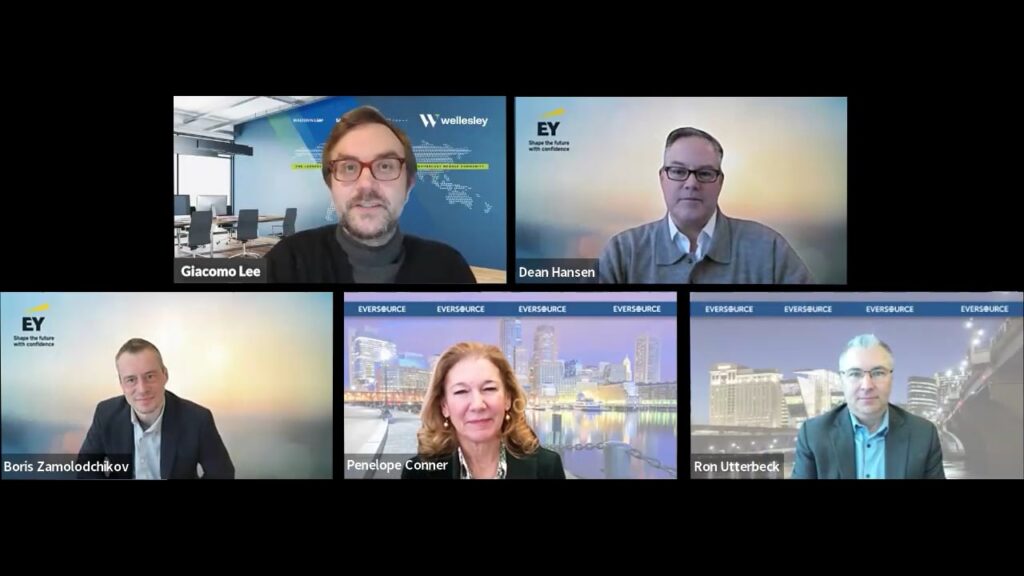From pandemic reset to green revolution, sustainability is growing in importance and deserves its place at the heart of your operations. But how do you go about that?
While 2020 will always be the year of the pandemic, 2021 may yet be remembered as the tipping point in corporate and global action on sustainability. In recent months, we have seen an unprecedented amount of activity on climate change as governments jostle to demonstrate leadership and a host of corporates announce their pledges to achieve ‘net zero’ in the lead up to COP26 in Glasgow. Multiple stakeholders are now pushing organisations to care more about sustainability: pressure from young people – who move to hold companies accountable for their impacts; from regulators – who seek to expand reporting on sustainability performance; and from institutional investors and the banks – who are ‘baking in’ environmental, social and governance (ESG) factors into their valuation and investment models.
This represents the culmination of growing support for embedding sustainability or ESG into business activities and an increasing focus on the importance of creating long-term value. At the risk of hyperbole, this trajectory appears to be unstoppable. Many predicted that the economic pressures caused by the COVID-19 pandemic would slow down the sustainability agenda, but the opposite appears to be true.
On a more direct level, the realisation that factors, from environmental pollution to human rights abuses, can topple CEOs and dramatically impact on share price has woken up even the least progressive leaders.
The impact on operations
So, given this growing interest and imperative, what changes do businesses need to make to their operating models and ERP systems?
The short answer is ‘a lot’ because sustainability impacts every area of operations.
Yet many businesses are not yet able to monitor, measure and manage the sort of non-financial factors that are critical to their sustainability performance. One example is the supply chain. Typically run on the basis of cost and time optimisation, supply chains now need to incorporate new measures, checks and balances that provide clarity around factors such as human rights and environmental performance. Without these measures, organisations leave themselves exposed to – and held responsible for – the actions of third parties.
So, the carrot for these changes is better risk management and a stronger story for customers and investors in a world where stricter legislation on everything from wildlife crime to human rights abuse will make it not only a ‘nice to have’ but a business necessity. At a fundamental level, companies risk – literally or effectively – losing their licence to operate. If that sounds overly dramatic there are plenty of cases where it has already happened – from energy companies who damage the environment, to retailers selling clothes made by child labour, or gambling companies which fail to protect the vulnerable.
Here we see the fallacy that there is a trade-off between doing good and delivering good business performance. In fact, they closely align around a common goal of long-term value creation.
Many businesses are not yet able to monitor, measure and manage the sort of non-financial factors that are critical to their sustainability”
Rewiring ERPs for sustainability
By now it should be clear that if your operating model, and indeed ERP system, is built purely around financial profit and loss, it will need some rewiring to adjust to this new world.
One significant challenge still facing many companies is their ability to monitor and measure the aspects most critical to their sustainability performance. Such gaps in understanding leave them ill-equipped to make informed decisions that will steward their companies towards long-term performance. Changes in what data is captured, as well as how it is interpreted and communicated, will be needed to drive decision making and satisfy the needs of all stakeholders, including investors.
New KPIs are going to be needed to help direct your efforts. They will not only need to target new non-financial metrics but will also be tilted towards driving long-term value. Once you begin to think it through, virtually every aspect of the modern enterprise becomes impacted. Is, for example, your senior management team being properly incentivised? Or do their targets need to incorporate sustainability outcomes?
In short, if you’re going to change your practices to reduce emissions, shake up your supply chain to promote sustainable behaviours and refocus your internal reporting to reflect new priorities, it’s likely that your ERP system will need a few tweaks at the very least.
Designing from scratch versus retrofit
Tempting though it is to take up the ERP Today editor’s invitation to create a blueprint for a new fictional organisation, I’m going to show you one that Elon Musk made earlier.
What I believe all his companies have in common is that they’re trying to solve a complex problem facing humanity, whilst also capitalising on the inevitable business opportunity. In Tesla’s case, it’s to accelerate the world’s transition to sustainable energy, addressing the automotive sector’s need to decarbonise quickly.
What’s interesting here is that, until relatively recently, its business model was doubted by investors and became a target for short-sellers, many of whom preferred to back legacy auto companies developing their own plans for the future of mobility.
That picture has now changed. Not only have investors been forced to reconsider their positions, recognising that national governments are phasing out combustion vehicles, but that some legacy companies are now paying Tesla for ‘vehicle regulatory credits’ – to meet electric vehicle targets and regulations.
The moral of the story is that if you’re designing something from scratch, you have the advantage of aligning everything towards your sustainability goals from day one. But even if you’re going for a retro fit, like the legacy auto industry which has made huge progress in reducing emissions and adapting to electrification, you can still make it work.
The future is green
As we emerge from the pandemic, ESG issues are not going away and are likely to remain essential to resilience and long-term recovery.
Government responses to COVID-19 in many countries include large stimulus packages tied to ‘green outcomes’, with specific focus on accelerating the transition to a zero-carbon economy.
There have also been other, more targeted, government interventions. The European Commission’s €750bn fund to help the bloc recover from the pandemic came with a requirement that 25 percent be set aside for climate change mitigation.
Another example is the ‘Build Back Better’ movement, which saw a coalition of CEOs publish an open letter calling for the creation of a post-COVID-19 global economy that boosts society, the planet and shareholders for future generations. The CEOs want to promote ‘purpose-first’ businesses as a fourth sector of the economy to join the existing public, private and non-profit sectors.
The growing significance of ESG issues to investors can be seen in the 2020 EY Climate Change and Sustainability Services (CCaSS) Institutional Investor survey. The survey found that, of the 98 percent of investors surveyed who assess ESG, 72 percent carry out a structured review of ESG performance, compared with just 32 percent in the previous survey conducted two years earlier. Moreover, many of those who currently use an informal approach, plan to move to a more rigorous regime (39 percent).
In the report, one institutional investor, Vincent Triesschijn from ABN AMRO, sums up the views of many investors: “It is our conviction that companies that perform well on ESG are generally less risky, better positioned for the long term and possibly better prepared for uncertainty.”
Climate change is not the only challenge businesses face in an increasingly disruptive world”
Seizing the opportunity ahead
But there’s one other huge incentive. As ERP Today readers will know only too well, climate change is not the only challenge businesses face in an increasingly disruptive world. Yet, with a great deal of information readily available it could be argued that climate change presents a better understood set of challenges and opportunities than, say, the future of digital innovation or even mobility in a post-fossil fuel world.
Yet we are already seeing huge ‘bets’ placed in those areas while many businesses wait for greater clarity before investing in decarbonisation. This creates a great opportunity for first movers. By seizing it, supported by governments and investors ready to help, companies can create value to all their stakeholders. For those who don’t take the opportunity, the speed and volume with which investment is shifting away from high carbon activities means that capital may be very hard to come by.
To be on the right side of that line, make sure that sustainability is a part of your business and not apart from it.
Matthew is a partner at EY, leading its climate change and sustainability practice across the UK&I. All views are his own.




